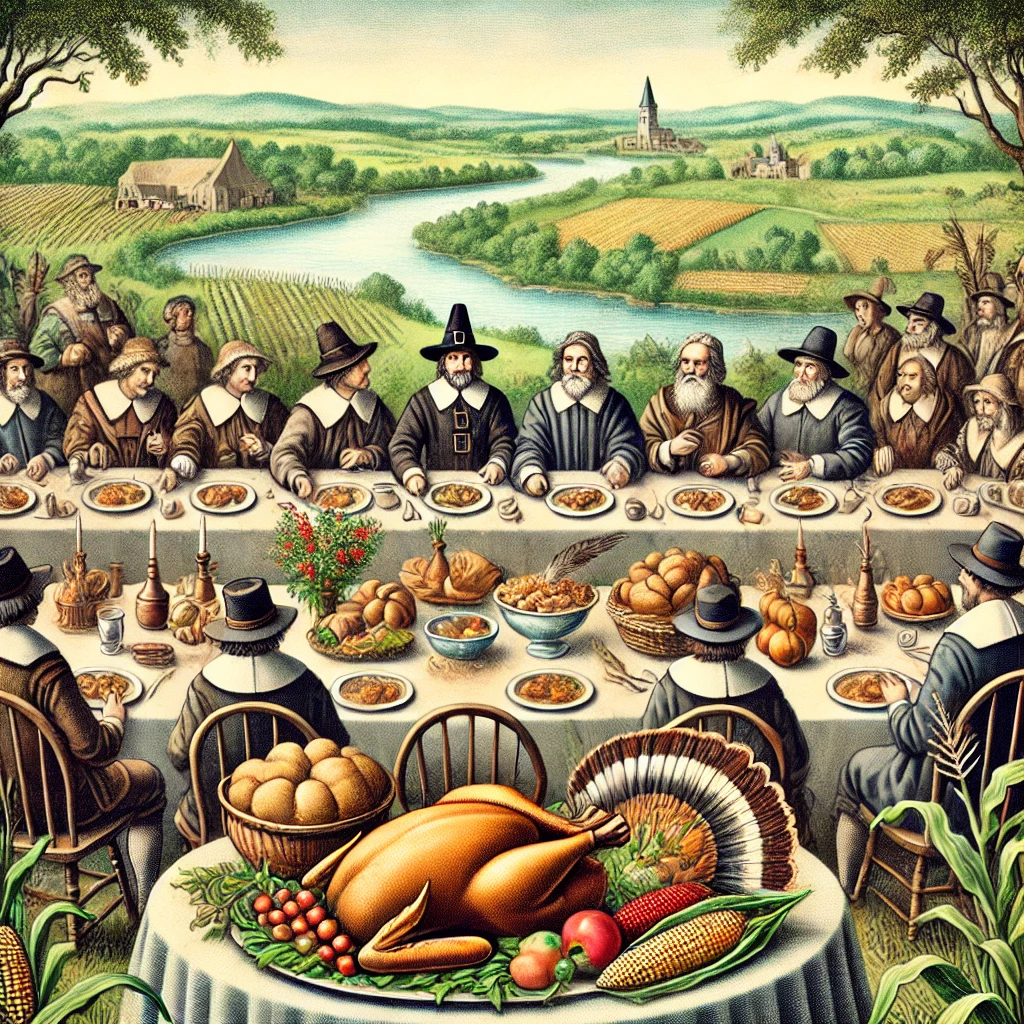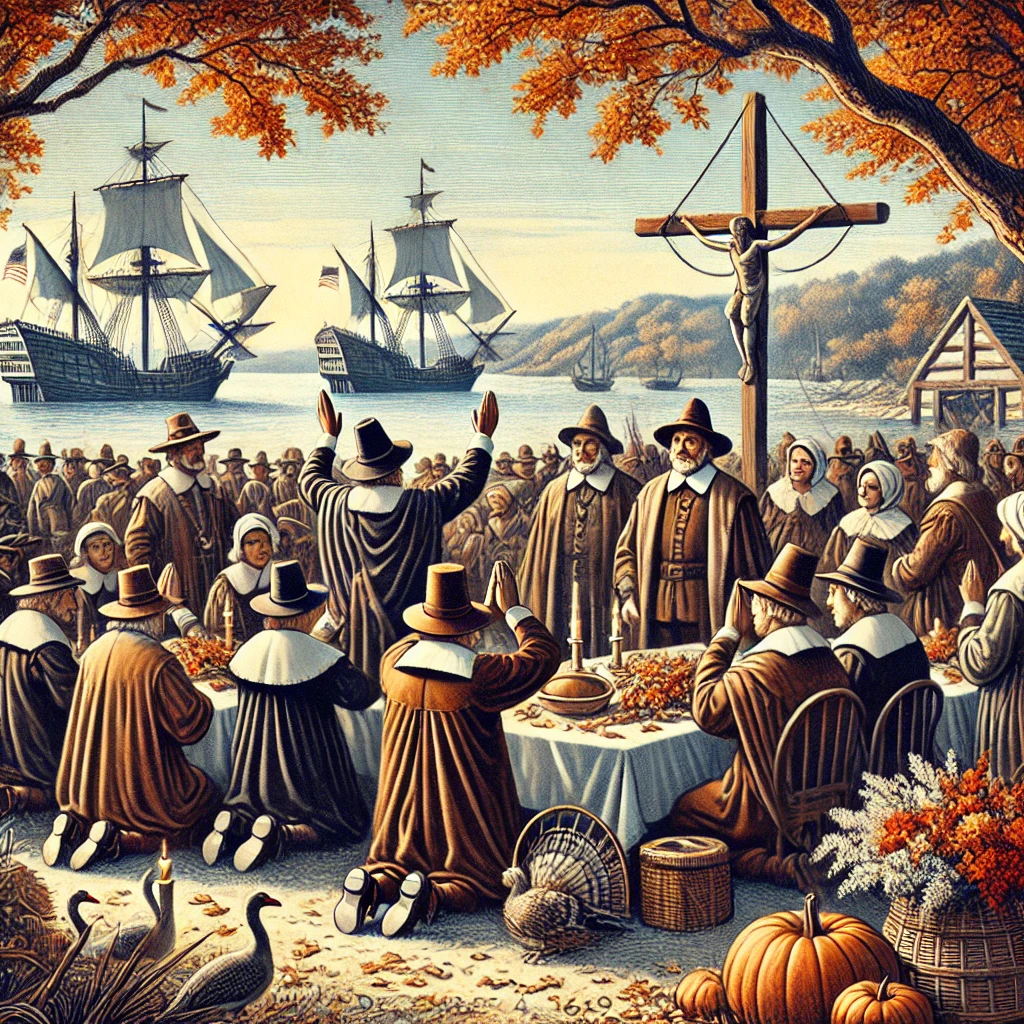On December 4, 1619, a group of English settlers gathered at Berkeley Plantation in present-day Virginia to hold a ceremony of thanksgiving. Unlike the widely recognized 1621 Pilgrim feast in Plymouth, Massachusetts, this earlier event marked the first officially documented Thanksgiving celebration on American soil. The settlers, led by Captain John Woodlief, arrived after a harrowing journey across the Atlantic aboard the ship Margaret.

Their charter from the Virginia Company required them to give thanks upon reaching their new home. This thanksgiving, however, was less of a festive meal and more of a solemn religious observance, with prayers of gratitude for their safe passage and hope for a prosperous future. The moment reflected the settlers’ resilience and faith, as they sought to establish a foothold in the New World.
The Significance of Berkeley’s Thanksgiving
The 1619 Thanksgiving at Berkeley Plantation holds immense historical significance, as it predates the Plymouth celebration by two years. While the Plymouth event often receives greater attention due to its association with the Pilgrims and Native Americans, Berkeley’s thanksgiving underscores a different narrative of early colonial gratitude and religious expression.

This observance was not a shared feast but a formal acknowledgment of divine providence. The Berkeley settlers’ act of thanksgiving became an early example of the religious motivations that shaped much of early American settlement. The event reflects how expressions of faith played a central role in the lives of these pioneers and laid the groundwork for the broader cultural practices of gratitude and thanksgiving that endure in the United States today.
Berkeley’s Legacy and the Modern Perspective

The Berkeley Plantation’s 1619 Thanksgiving has not always been widely remembered, overshadowed by the more iconic Plymouth story. However, in recent decades, historians and preservationists have worked to spotlight this foundational event. Each year, the plantation hosts commemorative ceremonies to honor the settlers’ moment of gratitude, drawing visitors who seek to understand the origins of America’s Thanksgiving tradition.
Berkeley’s Thanksgiving challenges conventional narratives and broadens our understanding of how diverse groups of settlers contributed to American culture. It reminds us that gratitude transcends geographical and cultural boundaries, serving as a universal human experience. Today, the story of Berkeley Plantation resonates as a testament to perseverance, faith, and the enduring importance of giving thanks in the face of challenges.
The 1619 Thanksgiving at Berkeley Plantation stands as an important, if less celebrated, chapter in American history. It invites reflection on the diverse roots of national traditions and offers an opportunity to honor the resilience of early settlers who, despite their hardships, found reasons to give thanks. As we commemorate Thanksgiving, recognizing its varied origins deepens our appreciation of this cherished holiday and its timeless spirit of gratitude.
